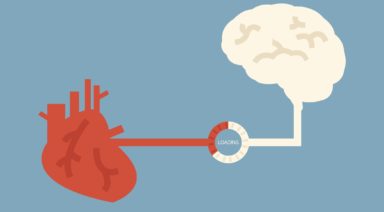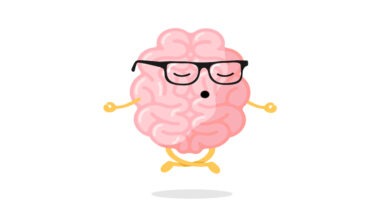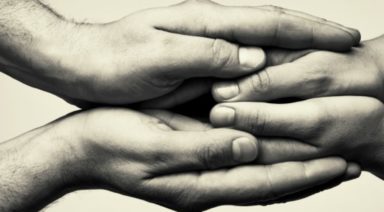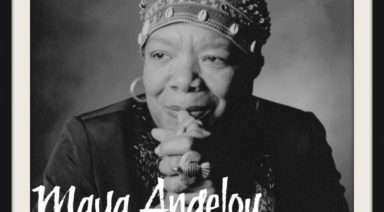What Are The 8 Real-World Types Of Love?
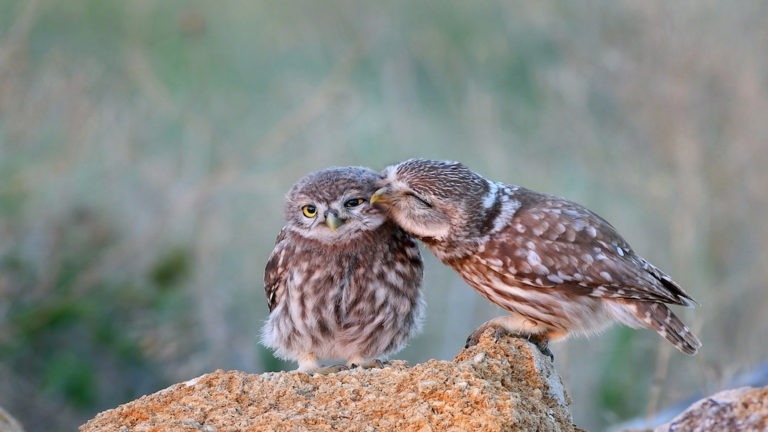
We can explore the fantasy definitions of love, including Eros, Storge, Philia, Ludus, Pragma, Philautia, and Agape. We can enjoy Robert Sternberg’s 3-component theories of love. Or we get into the down-n-dirty reality of love — the stink of it all. Yeah, let’s do that.
Real-world love is complicated, messy, and it doesn’t often come with instructions. While love can be delicious, nurturing, and near-perfect, it tends to be mysterious and elusive. Love is a tough concept to grasp and even more challenging to attract.
While there have been many brilliant people who have outlined profound concepts on love and relating, here’s my take on The eight Real-World Types of Love:
- Ego Love
Ego Love relationships are born from what other people provide and represent. It’s a self-centered style of love that is most often based on need-fulfillment. When Ego Lovers appear to be full of light and goodness, it’s often because their life requirements are being simultaneously met. If the slightest thing goes wrong or if an ego is pinched, the relationship can collapse in a heartbeat.
When two people are relating from this position, it’s all based on expectations. This is not necessarily bad, but it can be wrought with issues.
- Romantic Love
Romantic love is another form of Ego Love, but with a twist. As the 2nd lowest form of love, Romantic Love is chock full of fantasies and projections, and it’s often infused with the drippings of mutual objectification.
Romantic love is the gooey, yummy, fake love that makes our toes tingle. It’s love based on how others inspire you to feel. As you feel bliss, you assume that you love the other person. The sad truth is that, when experiencing these types of relationships, you’re projecting your lack of something, not your love of the other person.
What makes this type of love so addictive, sad, and ridiculous, and yet delicious, is that the mutual fantasies and objectifications often occur at the same time. This is when people usually have babies, planned or otherwise, make long-term commitments, and start families.
In about 25% of these marriages, couples eventually stumble into higher and more service-based love relationships. The other 75% live with a numb sadness, in complete denial, or they get divorced.
- Self Love
While Self Love might be elusive for some of us, it’s a vital step in our evolution. We must learn to love ourselves. If we can learn to love ourselves (garbage and all), we will undoubtedly stand a better chance at loving others.
- Servitude Love
While on the surface, Servitude Love appears to be pathetic and potentially dangerous, being in servitude to another human being can provoke extreme leaps in personal growth. It might also placate or heal someone on the verge of a breakdown.
For example, a husband might be in servitude to an angry, self-centered wife, with whom he shares several children. Over time, with his dedication, his servitude can turn into a Contractual, more resilient, or deeper love. Similarly, if a woman has become a slave-like housewife to an absentee husband, she might eventually embrace the depth of her loneliness, give birth to the full breadth of her power, and break free.
Sometimes our most destructive relationships force us to self-actualize. Without them, we may have never reached the top of the mountain. This is why, no matter what you’ve experienced, you’re not a victim. You’re an experiencer. That’s all.
- Contractual Love
When we know and love ourselves, we are better equipped to fulfill our agreements. When we understand our limitations and issues, we are more successful in meaningfully participating in mutual relationships.
Contractual Love requires clear objectives and agreements, whereby both parties have evaluated their positions in the relationship, and considered every aspect of the other person’s position. In doing so, both participants can make clear and clean commitments in the form of contracts. Within the confines of the agreement, both parties feel safe, and they begin to develop a mature and durable bond. Because it’s based in clarity, these bonds stand a good chance of evolving into higher forms of love.
While this Contractual Love might feel a bit antiseptic, it’s often the most successful form of love. Why? Because both parties put deep thought into the concept of their relationship, and they considered every aspect of the other person’s agenda. They may also have extinguished their selfishness, expectations, fantasies, and projections.
When we thoughtfully and consciously evaluate and improve ourselves, can stand a better chance at building the types of foundations that can carry us through the realities of life.
- Light & Friendly Love
Light & Friendly Love produces beautiful relationships that feel like gentle breezes, flowing in and out without tension or restriction. We might have sweet hopes and simple desires with these lovers, but few demands. In our relaxed and loving states, both participants blossom, and all is well.
As these relationships unfold, we feel gratitude upon every experience, and at every juncture. It would be rare for this type of relationship to produce any measurable levels of anger or disappointment. Mostly, this love reminds us that human beings are beautiful creatures with exponential potential in all directions.
- Interdependent Love
Interdependent Love is when two or more people enjoy supporting and loving each other. While giving and receiving, they tend to refrain from adding unnecessary requirements to the relationship. Participants in Interdependent Love might have bad days, but they would never require the other person to solve their problems. In fact, Interdependent Lovers would also never blame others for their challenges or emotions. They might even work on specific, personal challenges without ever telling their primary partner.
While codependence has been given a bad rap, it’s an important step toward interdependence. Without experiencing codependence, we could not know its opposite, and we might never understand our shortcomings. When we enjoy giving and receiving within an Interdependent Love, we tend to feel validated by it. In a way, this is also codependent.
Interdependent Love takes responsibility for intentions, actions, and outcomes, without playing the victim. An Interdependent Love is where you stand strong, I stand strong, and there is a bridge between us. If one of us falters, our bridge sustains us.
Interdependent Love relationships are often elegant ecosystems, as each participant takes responsibility for every aspect of their participation, while also consistently creating value for others.
- Human Service Love
When we realize that we are each one with all of creation, and one with every Universe and realm, it becomes first nature to seek ways to serve others. Upon the recognition and empathic embodiment of other people’s pain, we merge with them. Doing so, we feel what they feel and endeavor to gently lead them to lighter and lovelier states of being.
While Human Service Love is the ultimate way to serve humanity, it’s a tall order. If you struggle with loving yourself or releasing your ego, you might refrain from loving and giving in this way for some time. If you have not learned to love yourself and give without ego, your intentions to lovingly serve others might sour, which could result in doing more harm than good.
To start your exploration of Human Service Love, take baby steps. Make a note of how your ego reacts to each gift you give to the world. As you learn and grow, make adjustments, then explore some more.
On The Road To Love
Within each of these types of love, there are nuances, subcategories, parallels, and offshoots. You know yourself best. Be gentle with your heart. Set boundaries that protect, nurture, and honor you. And find loving ways to relax your ego into the nothingness from which it came.
Does Your Heart Have a Mind of Its Own?
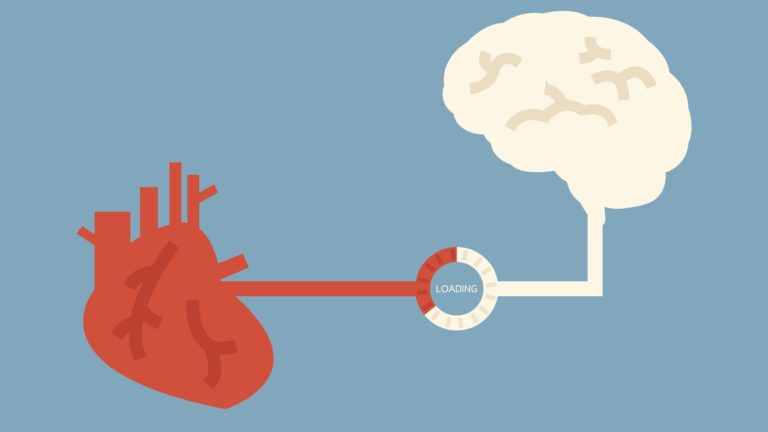
Until recently, modern science perceived the heart as merely a pump to regulate the flow of blood throughout our bodies. But across numerous cultures, the heart has historically been thought to have a much greater function that corresponds with our thoughts, emotions, and spirit.
When we speak or share feelings from a place of deep meaning or passion, we say we’re speaking from the heart or we’re trying to convey something that is heartfelt. This is no longer just an archaic maxim, but instead, one with factual backing. And science is now realizing that the heart and brain have more of a corollary, interactive relationship than previously thought … a relationship that has residual consequences on our bodies, and possibly even humanity as a whole.
Connecting Two Major Organs
The brain has typically been thought to be the control center for the body, sending directions through the nervous system to different organs, telling them how to behave. This is done through voluntary or involuntary action, like telling the heart to pump blood. But in reality, the heart sends more signals to the brain than the brain does to the heart, influencing emotions, memories, problem-solving, and high-level cognitive functions.
In fact, the heart has its own network of neurons. This network is so sensitive that our heart rhythms become highly ordered when we experience positive emotions, love, and joy. On the contrary, negative emotions and psychological activity cause erratic and jerky heart function, leading to inefficiency, lack of energy, and poor reasoning.
While massive fluctuations can shake up our energy and emotional levels, our heart rates already fluctuate very regularly, sometimes even every beat. Although these fluctuations are minute it shows just how sensitive our hearts are and how susceptible they are to change. These oscillations in our heart rate are called Heart Rate Variability or HRV. HRV essentially measures the change in our heart rate with each beat. It is an effective way of being able to maintain and effect psychophysiological coherence or heart-brain coherence.



